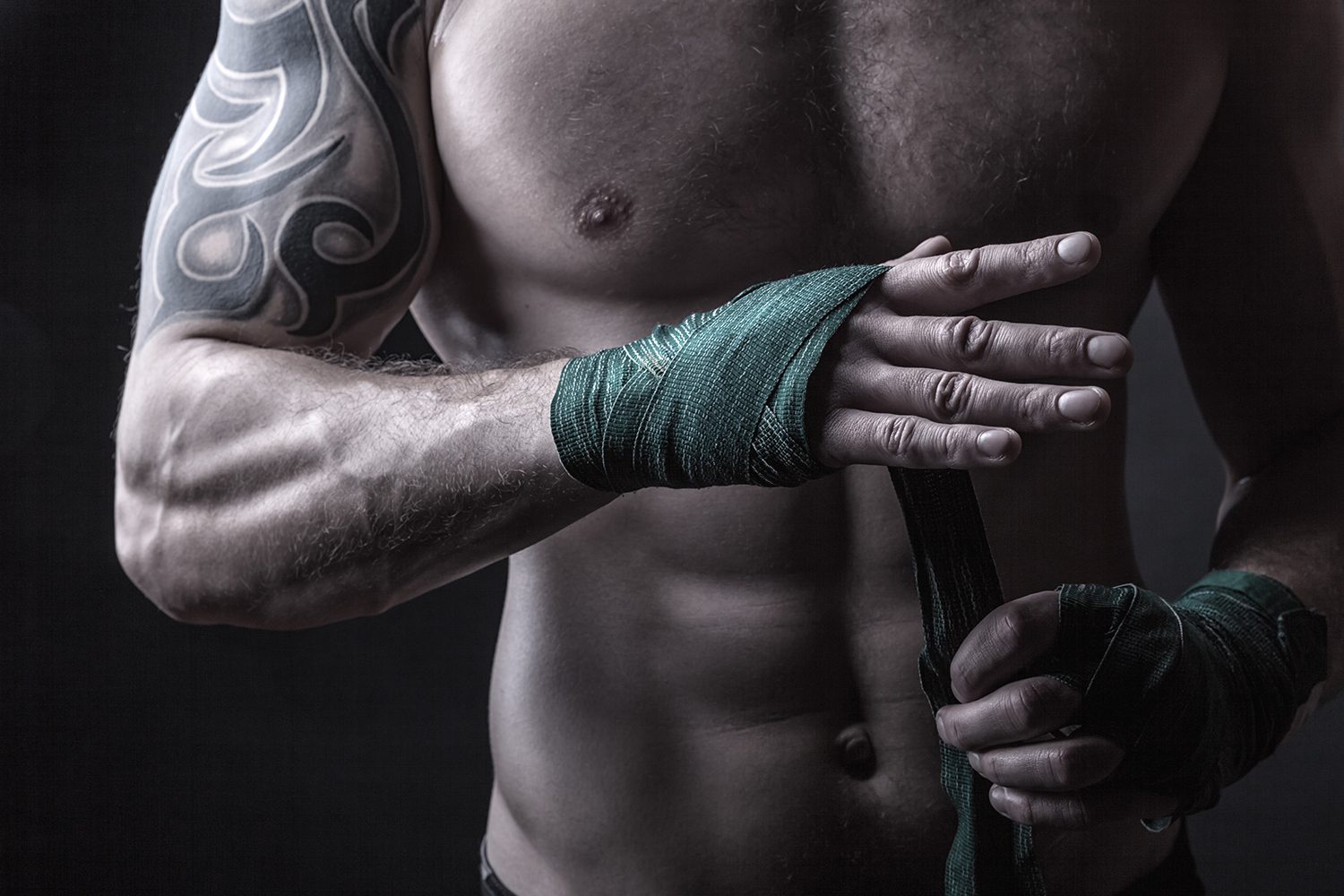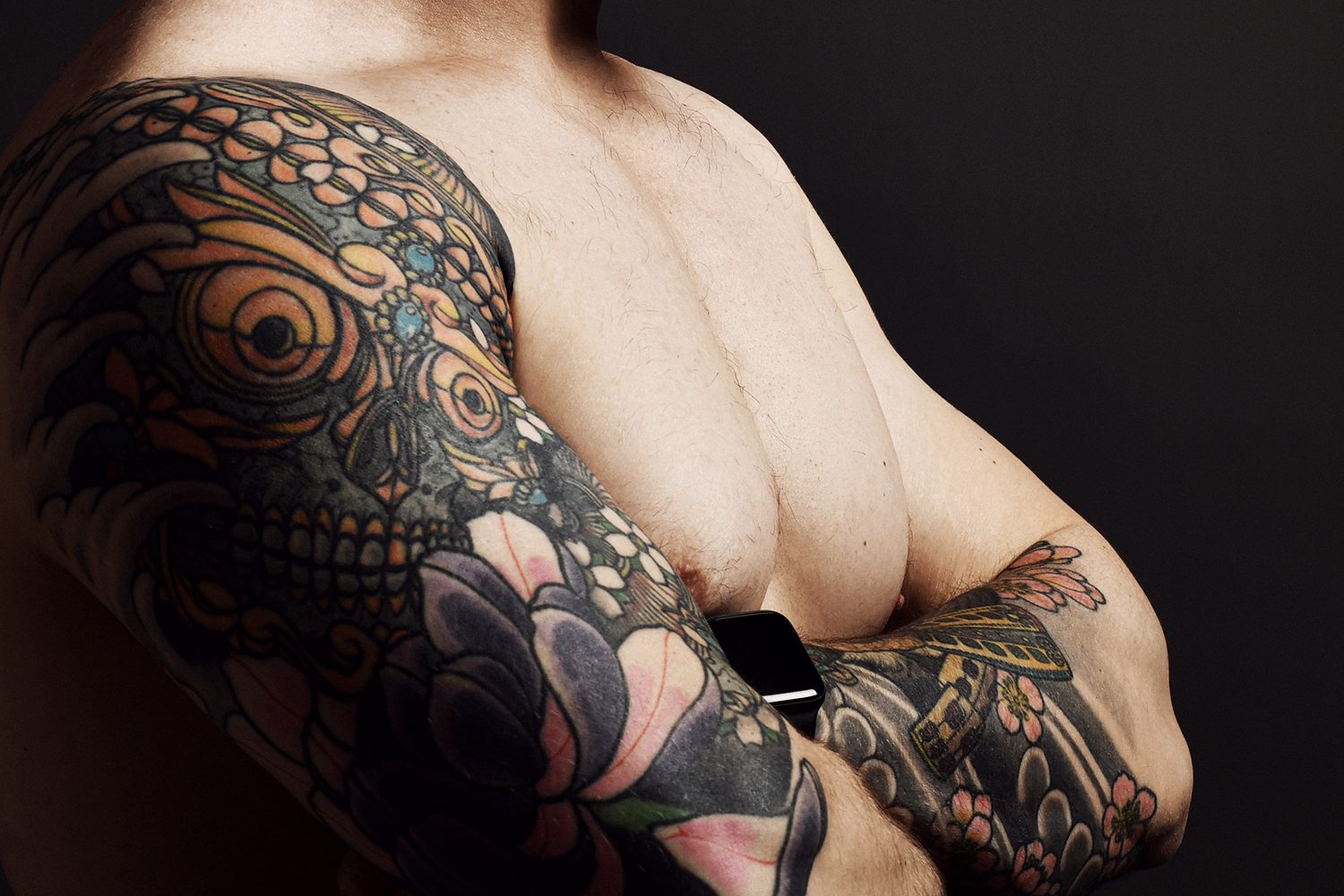
Adam Levine’s tattoos were a bigger deal at the Super Bowl than his actual performance; a shirtless Justin Bieber turned his into fashion on the cover of Vogue; David Beckham has so many that he’s started to layer them on top of one another; they’re as ubiquitous on stars at the Grammys as they are on NBA courts.
The trickle-down effect from celebrity to normal person has made them so common that meeting someone who doesn’t have a tattoo is now more notable, at least where I live.
But take one look at Post Malone and there’s an argument that we may have reached peak tattoo. What’s a modern Fitstagrammer or Internet-famous barber or SoundCloud rapper without a body covered in ink?
What was once a look is now the look. Yet the more tattoos you get, the more casual they seem. I spend less time thinking about a deep meaning and personal significance for each one. Instead, I treat them as art that I can actually afford.
I seek out artists whose work I love and give them minimal direction, sometimes waiting years for an artist’s schedule to open. That philosophy has turned my skin into a tapestry of my life, and while I won’t say I have absolutely no regrets, I’m proud of my body-as-gallery.
Tattoos won’t appreciate in value like art, but they are mutable. They’re subject to all the other changes your body goes through (aging skin, weight gain, sun damage). They’re an investment you need to protect. Here’s how.
Tattoo Aftercare is a Must
If you have a tattoo, you know about aftercare, that span of time post-tattooing when you need to focus on healing the wound.
“Most of the aftercare period is around two weeks, but it does take a month for a tattoo to be 100 percent healed,” says Megan Massacre, a tattoo artist and cofounder of Grit N Glory Tattoo in New York City. After that month—provided there were no issues like infection or scarring—you should switch your focus from healing to protection.
Wear Sunscreen
“You can have oxidation of colour over time through UV radiation,” says dermatologist Dendy Engelman, M.D. “Just like our skin changes colour when it’s exposed to UV light, ink particles can go through changes that are related to sun exposure. It’s like paint on a building that can chip over time.” Wearing daily sun protection will help minimise damage, and mineral sunscreens containing zinc or titanium dioxide add extra shielding. They physically block rays by creating a barrier on top of the skin.
Sun protection is especially important for anyone with multiple or large tattoos, because skin cancer is a very real danger. “A tattoo is not going to put you at a higher risk for skin cancer, but a tattoo could be masking skin cancer underneath,” says dermatologist Forum Patel, M.D. “It’s hard to tell if something malignant is growing where there’s black pigment.” Get an annual checkup from a dermatologist, and ask the doctor to spend extra time examining the tattooed areas of your body.
“You have layers of skin above the tattoo ink,” says Massacre. “If the skin is calloused, thick, rough, and dry, then it’s going to affect the way the tattoo looks.” The best way to preserve the freshness of your skin and tattoos is to moisturise. “Over time, it will make the skin quality better,” says Dr. Engelman. “If you keep your skin healthy, your tattoo will look better.” Regularly using a lotion like SkinFix Inked Tattoo Balm (which Massacre recommends) will help maintain the quality of your skin and let the tattoo shine through. Double points if it also has SPF, such as House 99 by David Beckham Bold Statement Tattoo Body Moisturising Cream.
Maintain Tattoo Colour with Supplements
Have you ever noticed an older dude whose tattoo has spread so much you can’t tell what it is? That’s due to natural collagen loss. While you can’t completely stop this process, you can slow it down, just as you do on your face. “Skin is skin, so we want to treat it the same as much as we can,” says Dr. Engelman. “But we’re not going to slather $300 serum head to toe, because that’s cost prohibitive.” She recommends a collagen supplement from Reserveage.
Look Out for Symptoms of an Allergic Reaction
You also need to monitor your tattoos for changes, even if you’ve had them for years. “When tattoos become red or itchy, it could be an allergic reaction,” says Dr. Patel. “I’ve seen people have a tattoo for 10, 20, 30 years and mount an immune response to it. It’s called a delayed response.” Your body may be reacting to the ink itself, or you could have light-induced photosensitivity. (This is your second reminder to wear sunscreen.)
If you notice something you think might be an allergic reaction, particularly if it’s only around a tattoo, see your dermatologist immediately.Or you could just, you know, remove them. But new inks are also making our tattoos look better longer.
“The level of quality and technology in tattoo products has increased drastically the last 10 years,” says Massacre. “In theory, you shouldn’t see the same aging process as you’ve seen before.” Which is great news for me, since I’m currently planning my next three or four tattoos. Now, would the tube of moisturiser look better on my shoulder or my hand . . . ?
Via Men’s Health



















